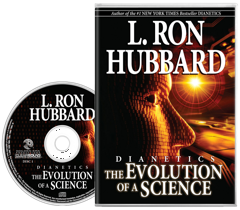The 8-Minute Rule for Dianetics
The 8-Minute Rule for Dianetics
Blog Article
Not known Details About Dianetics
Table of ContentsSome Known Details About Dianetics Our Dianetics StatementsWhat Does Dianetics Mean?More About Dianetics
I could not ever not wish to receive anything that comes to mind for you- if it was otherwise, I would not be resting here with you, doing this. I not only might never have a problem, or otherwise intend to hear something that comes to mind for you, yet I'm completely excited to understand every idea, every idea, every picture or sensation that emerges or manifests for you- do not ever before assume or else, and if for one reason or another you do, please simply allow me recognize! In some cases, you might have an idea, and image, idea or incident turn up that does not appear to answer the concern, or associate to it, but however, constantly do tell me regarding it, and as we proceed, the relevance will certainly arise for you.This is integral in the basis of processing, and the subject of this discussion: the fundamental functions of the counselor and the client: The standard role of the therapist is, in contrast to "standard training", not to regulate, which suggests to enforce and/or inhibit, yet to instead function from the basis of EMPOWERING THE CUSTOMER.

The Best Strategy To Use For Dianetics
John Mcmasters shared this fundamental truth wonderfully well in among his lectures on Power handling, where he discusses just how he was asked what this "special propensity" was that he had for providing such excellent sessions; he needed to think of that for a moment, and spotted that it was what he had not been doing, along with what he was doing: he wasn't reviewing, evaluating, computer, or in reality, producing any thoughts, allow alone spoken expressions, after offering the command and while waiting on the computer to finish their solution to their fulfillment; he was, merely and only, existing with the computer, and totally interested.
The role of the counselor, demonstrated; that was his "special knack". I have had my very own experience which taught me this well, extremely early in the game. In 1982, having recently finished my training and internship on New Era Dianetics, I was running this on a COMPUTER, and there was a point in the Learn More session where (being a little you can find out more bit wet behind the ears not yet having several hours under my belt as a professional auditor) the computer seemed to be "taking too lengthy" to share anything vocally after I offered him a command.
This trick ended up being one of the most beneficial payment that John ever before made to the subject of therapy or bookkeeping (Dianetics). In my humble viewpoint, it is the best contribution that anyone has ever made to these subjectsthe application is totally non-judgemental, non-evaluative, and empty of any type of tip, guidance or opinion.no preconditioned agenda for people, or 'degrees' that they need to do
In Scientology we prided ourselves on not reviewing for individuals. All that actually suggested was that the auditor did not VERBALLY evaluate for the PC in session.
Dianetics for Beginners

Anyone who had ever before seen John audit could not assist however see an unique top quality in his auditing."The client's standard role is to be there with the objective of relocating the instructions of their spiritual goals, and to freely and fully express and experience whatever materializes for them in addressing the inquiries and executing the guidelines in the handling.
This is something to procedure as required. Additionally, people frequently have previous experience and/or indoctrination their explanation in auditing/processing which, in some means, and to some levels, actually misinforms them right into mindsets, ideas and behavior patterns that protect against the complete awareness of these duties, and so they will certainly tend to prevent the expressing of what comes to mind, as in the instances offered over - Dianetics. * The initial, and perhaps primary examples of mis-indoctrination resulting in less than entirely smooth and reliable sessions, can be located in certain aspects of the training regimens, or "TR's":"TR's" are usually an individual's very first, or at the very least early, experience in Scientology, and while I will go on to discuss what I see as the flaws in idea and method, however, have a tendency to be significantly restorative, done as they are provided (Hubbard urges that "TR's are not processing, they are educating", however factually, they are both processing AND training)
There is no "failing", and no denial of the truth of this being handling. The focus, as it ought to be, is on experiencing the other individual's visibility.
An Unbiased View of Dianetics

Report this page